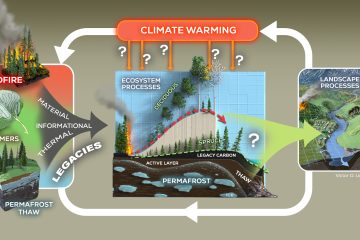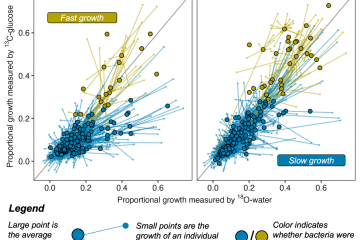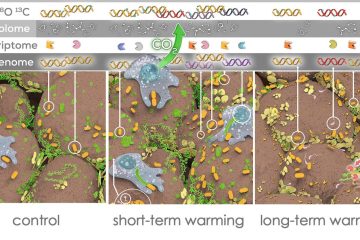The Influence of Leaf Type on Carbon and Nitrogen Assimilation by Aquatic Invertebrate Communities: A New Perspective on Trophic Efficiency
Despite abounding evidence that leaf litter traits can predict decomposition rate, the way these traits influence trophic efficiency and element transfer to higher trophic levels is not resolved. Here, we used litter labeled with 13C and 15N stable isotopes to trace fluxes of litter C and N from four leaf types to freshwater invertebrate communities. We measured absolute (mg C or N) and relative assimilation (percentage of litter C or N incorporated into invertebrate biomass relative to C and N lost during decomposition). Four patterns emerged: (1) Invertebrate communities assimilated more C and N from slowly decomposing litter than communities feeding on rapidly decomposing litter; (2) absolute assimilation of both C and N in leaf packs was positively correlated with the relative biomass of invertebrate taxa in leaf packs; (3) Chironomidae larvae, which colonize packs in the early decomposition stages, assimilated the most C and N by the end of the 35-day experiment; and (4) most taxa, spanning five functional feeding groups (collector–gatherers, shredders, collector–filterers, scrapers, and predators), showed similar patterns in both absolute and relative assimilation across leaf types. These results challenge traditional views of litter quality by demonstrating that trophic efficiency is negatively associated with decomposition rate across these four leaf types.


